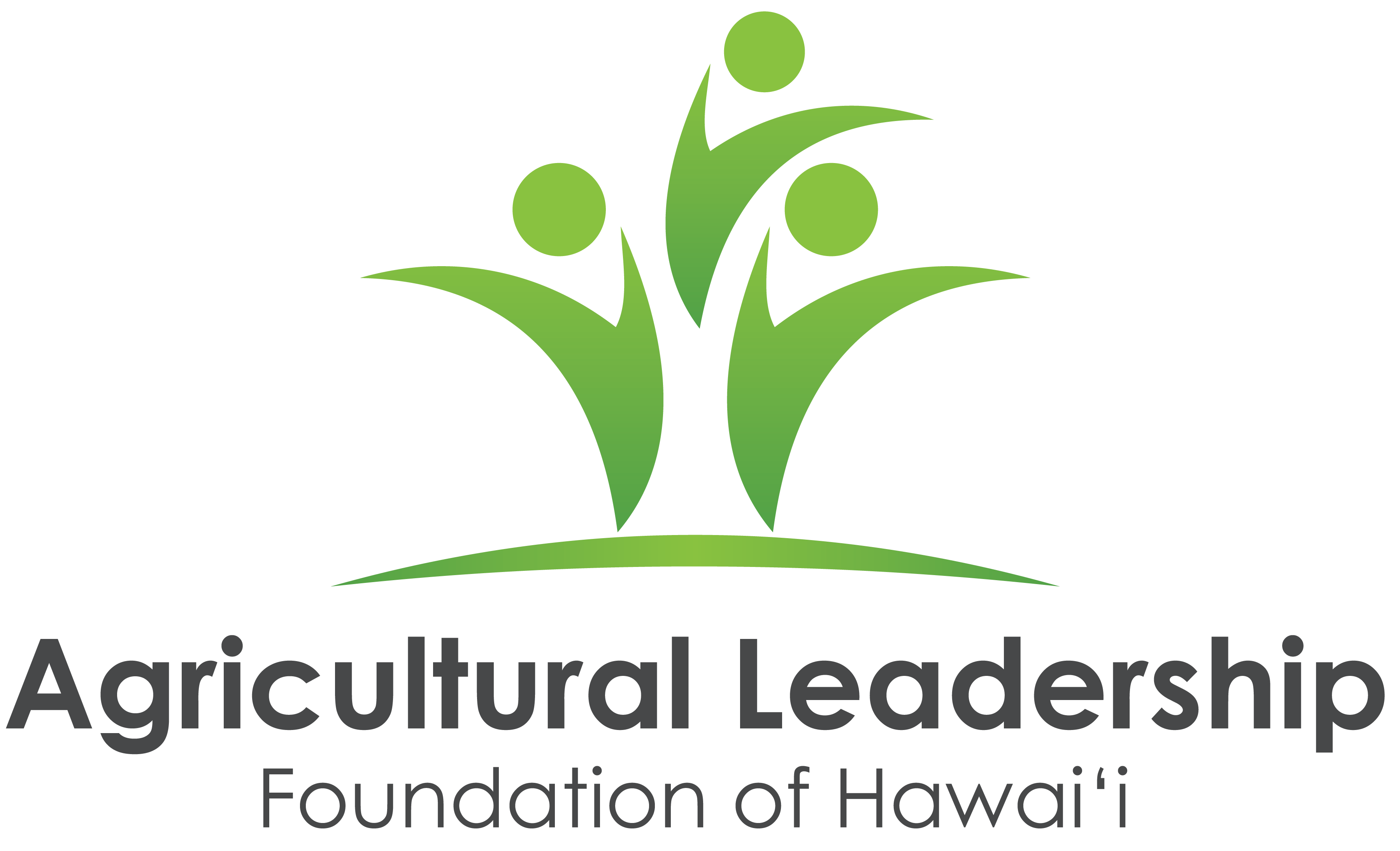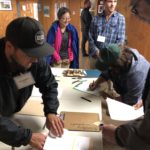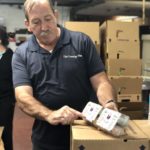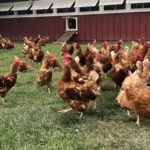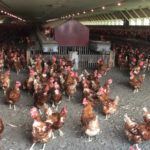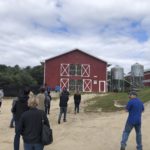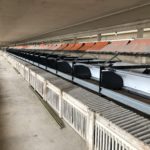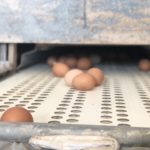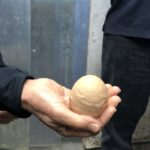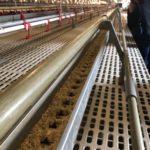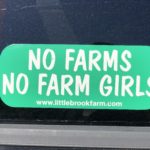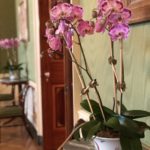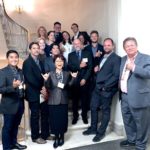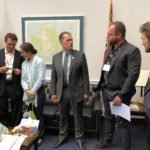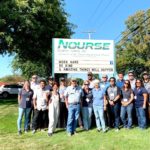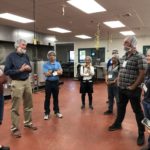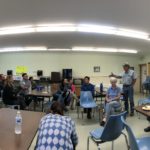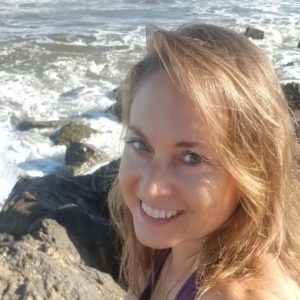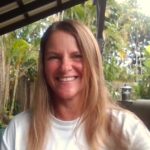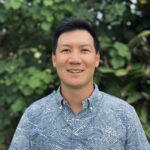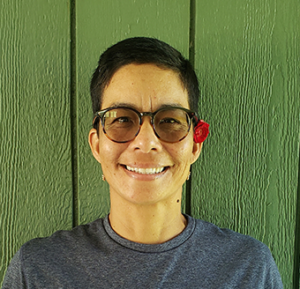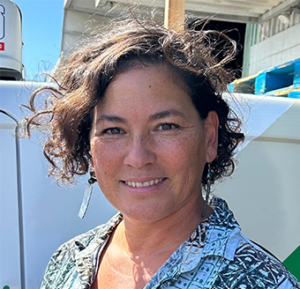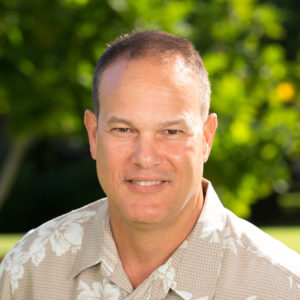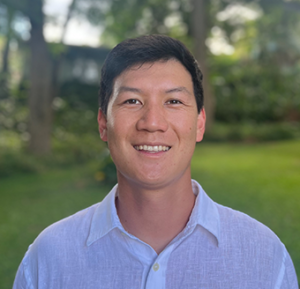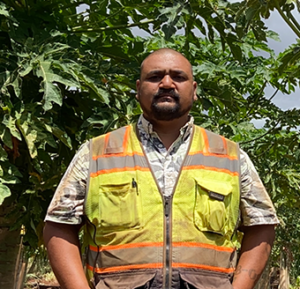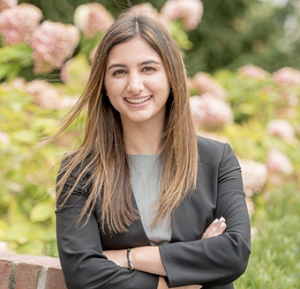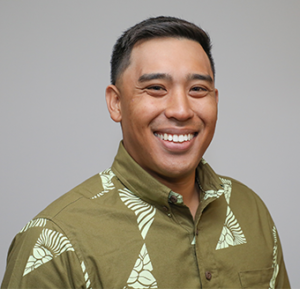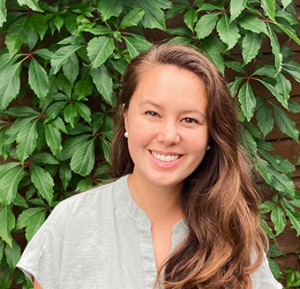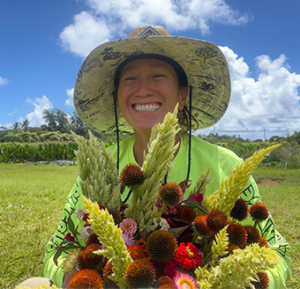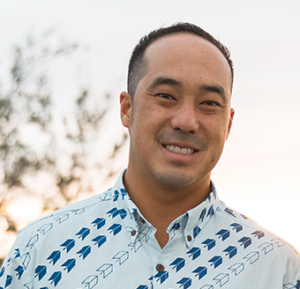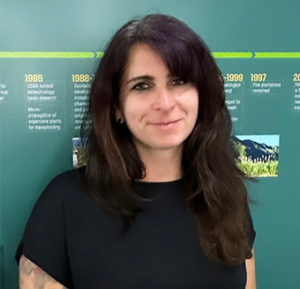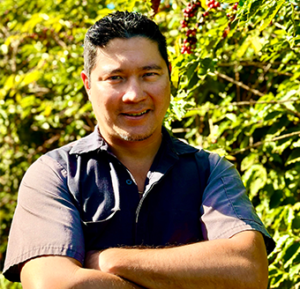Our morning started a little earlier than usual as we checked out of the Red Roof Inn and made our way West to our only visit of the day, The Country Hen.
The Country Hen was started in 1988 and produces organic, cage-free Omega-3 eggs. How do they make it you are probably thinking? They focus most importantly in what they feed their chickens. By using an organic blend of feeds and supplements, their eggs contain omega-3s (DHA, ALA, & EPA) and vitamin D making it healthy and beneficial for humans but also for the growing, happy hens. Many thanks to our gracious host, Bob Bearegard, the General Manager of the operation, for making time and giving us such an intimate tour and lunch!
In their older growing methods, the traditional wooden barns with window vents, they can produce about 13,000 eggs per day. Each chicken lays one egg per day and are given freedom to roam and leave the barn through openings in the barn to the outdoor “porch” as they called it.
They feed their chickens a special blend of organic soybeans, corn and added nutritional supplements. They claim to be the only farm producing these organic Omega-3 eggs. To get a better idea of how much feed they need to make to supply themselves: 1 chicken eats 1/4 lb. per day, 1 barn holds about 13,000 chickens = 3,250 lbs. per day per barn!
With technology and innovations, their most recently built barns can produce at roughly 15,000 eggs daily or more. Through mechanized belts and packing machines, they increased their efficiency tremendously and even lowered labor cost. The new barns are powered by PV systems, mechanized feed belts, and more space for the chickens which is resulting in their increased their production.
Biosecurity is critical in poultry farms. I had no idea of the severity of the impacts of the Highly pathogenic avian influenza (HPAI), or commonly known as the Bird Flu. When we arrived to the farm, we had to get our vehicles tires and fender wells disinfected. When entering the farm, disinfecting our shoes were required when entering different areas and barns. This reminded me of the similarity of the anthurium industry with bacterial blight. Without protocols and biosecurity measures, HPAI can be detrimental to an entire operation in a very short time, very similar to the anthurium industry.
The egg farm currently being made near the north shore in Oahu is actually affiliated with The Country Hen. We learned that the Oahu farm, given the name Villa Rose, is a joined venture of Rose Acre Farms and Hidden Villa Ranch (partner company with The Country Hen). With both of the farms 150 years of egg-sperience, they wanted to increase local food production and sustainability in Hawaii agriculture. Villa Rose will be the first modern cage-free layer farm in Hawaii and consist of its own pullet growing, grading, and feed mill. They expect their first eggs by the 2nd quarter of 2020 with approximately 9000/15-dozen cases per week of locally produced food. I’ve heard of this operation in the past but didn’t realize how far along they were. It’s also gong to be able to house 1,000,000 hens!! There’s so much to say and so much details I could add about this farm visit! The class all agreed and enjoyed this egg-cellent visit!
After an awesome hosted lunch, we started our journey East to New Bedford, MA, about a 2 hour commute. We then checked into our hotel and later all departed ways to explore the town for some dinner.
